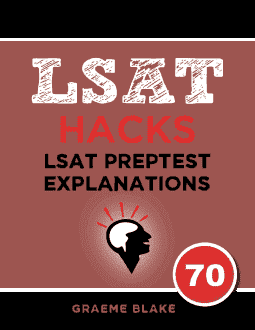DISCUSSION: For author’s attitude questions, look for judgments. Authors tend to be quite subtle. Assume that any small positive/negative judgment implies that the author completely agrees/disagrees with a given group.
___________
- The author didn’t say that people misunderstand risk. For instance, the second sentence of the third paragraph imply that people do understand the risks faced by skydivers.
- It’s true that the author doesn’t recommend listening to ordinary people. But the author’s concern seems to be that regular people don’t support enough regulation. For instance, the author supports regulating the safety of skydivers (see the second sentence of the third paragraph), whereas ordinary people wouldn’t want to spend money improving skydivers’ safety.
- CORRECT. From the fifth sentence of the second paragraph to the first sentence of the third paragraph show two reasons that the author is skeptical of ordinary people’s views on voluntariness. Ordinary people only look at part of the situation, and ordinary people decide whether something is voluntary based on whether or not they like the activity.
- Actually, the first sentence of the fourth paragraph show that the author is mainly concerned with saving lives.
- The author never criticizes experts. Instead, the author spends paragraphs 2-3 criticizing common people.


Hi Graeme,
I’m also not convinced that why D is not the answer here. I think D very well covers the whole essence of this passage. Though I feel a ‘should ‘ would be better than ‘can’ because author does make a suggestion in the final paragraph.
‘
C talks about the intuitions of the people while the passage discusses their judgement and claims. C discusses what they might ‘think’ while the passage tells what they actually character or consciously brings forth. I think there is a leap in C.
D looks more inline with the theme of passage.
Please help me remove any gaps in my understanding.
Thanks,
SR
The issue with (D) is that it says the sole criterion for justifying human intervention is saving lives. We have clear evidence in lines 48-54 that the author believes there are two other criteria to consider: 1) the limitations of public and private resources dedicated to risk reduction 2) more specific considerations that are falsely labeled as notions of “voluntariness.”
As for (C), our “intuitions” are simply our instinctive feelings about something, i.e. the opinions/beliefs we have prior to conscious reasoning. The author of this passage takes issue with relying on people’s intuitive judgments (that “often stem from confusion and selective attention” lines 15-16) when the government considers the cases in which it should intervene to protect people from risk. In the second and third paragraphs, the author describes why the opinions of laypeople are ill-considered, and in the final paragraph, suggests that the government should only depart from the general principle of saving as many lives as possible by not invoking people’s misguided opinions about the voluntariness or involuntariness of risky activities, but a more thoughtful consideration of laypeople’s notions.
Hi. Your explanation on answer D is ambiguous. The answer says the author’s attitude can be described as a “conviction that the sole criterion that can justify government intervention to reduce risk is the saving of human lives.” And you say “Actually, lines 47-49 show that the author is mainly concerned with saving lives.”… How is this an explanation of how this answer is wrong? It seems like you’re just confirming that there is evidence that this IS the author’s attitude. What am I missing here?